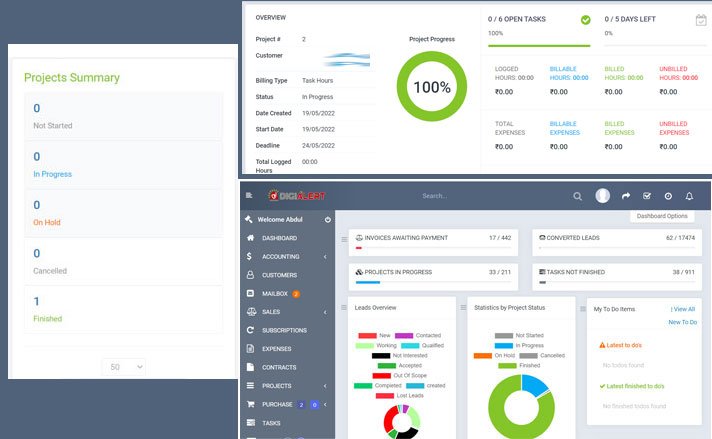API Penetration Testing
"Why was the hacker trying to break into the API? Because he wanted to take a shortcut!"
API Security Assessment
WHAT IS
API Security Assessment
As a Managed Security Service Provider, digiALERT offers specialized API security assessment services to organizations of all sizes. The goal of our assessment is to identify any weaknesses in the design, implementation, or configuration of an organization's APIs that could be exploited by an attacker to gain unauthorized access to systems or data, or to perform other malicious actions.
Our assessment process begins with a thorough review of an organization's API design and architecture, as well as its code and configuration. We use a combination of automated and manual testing techniques, such as static code analysis, dynamic testing, and security testing, to identify any potential vulnerabilities and determine their severity.
After potential vulnerabilities are identified, we validate them through dynamic testing to ensure that they can be exploited in a production environment. We also perform security testing to validate the security controls implemented to protect the API, such as authentication and access controls, encryption, and input validation.
Once the assessment is complete, we provide a detailed report of our findings and recommendations for addressing the vulnerabilities. This report can be used by organizations to prioritize their security efforts and make necessary adjustments to the API's design, code, or configuration.
Our goal is to help organizations to identify and address any weaknesses in their APIs and to improve the overall security of their systems and data. By partnering with digiALERT, organizations can ensure that their APIs are secure and resistant to attacks.
Speak to an expert
key features
API Penetration Testing
Types of
API Security Assessment
-
Manual testing: Our team of security experts manually test the API by simulating different types of attacks, such as trying different combinations of inputs and payloads. This approach is effective in identifying vulnerabilities that are not easily detectable by automated tools.
-
Automated testing: We use advanced tools to automatically scan the API for known vulnerabilities, such as SQL injection attacks or cross-site scripting (XSS) attacks. This method can be efficient in identifying known vulnerabilities, however it may not identify unknown vulnerabilities.
-
Penetration testing: We simulate real-world attacks on the API to see how it responds and if it is vulnerable to exploitation. This method can help organizations identify vulnerabilities that may not be detectable through other types of assessments.
-
Static code analysis: We analyze the source code of the API to identify potential vulnerabilities or security flaws. This approach can be useful in identifying coding errors or logic issues that could lead to vulnerabilities.
-
Dynamic testing: We run the API in a live environment and test it for vulnerabilities as it is being used. Dynamic testing can help to identify vulnerabilities that may not be apparent through other types of testing.
-
Security assessment frameworks: We use a set of guidelines and standards, such as the OWASP API Security Top 10, to assess the security of the API. This way we ensure that all possible threats are covered, it can be more comprehensive, efficient and effective.
Statistics on
API Penetration Testing
Speak to an expert
What are the Tests
We do
At digiALERT, our goal is to ensure the security of APIs through comprehensive testing services. As part of our testing process, we include the OWASP Top 10 API risks to identify any vulnerabilities and weaknesses in the system. By conducting these tests, we provide organizations with valuable insights and recommendations for improving the security of their APIs. This way, we help organizations protect sensitive data and ensure the reliability and stability of their API systems.
OWASP Top 10 for APIs is a list of the most critical security risks for Application Programming Interfaces (APIs). The latest version, OWASP Top 10 for APIs (2021), includes the following risks:
- Broken Object Level Authorization: Lack of proper authorization controls, allowing access to sensitive data.
- Broken Authentication: Weaknesses in authentication mechanisms, allowing unauthorized access to APIs.
- Excessive Data Exposure: APIs exposing sensitive or confidential data without proper protection.
- Lack of Resources & Rate Limitation: Insufficient protection against denial-of-service (DoS) attacks and resource exhaustion.
- Broken Function Level Authorization: Improper authorization controls at the function level, leading to unauthorized access to sensitive data.
- Mass Assignment: Allowing untrusted data to be stored or manipulated in the API, leading to security breaches.
- Security Misconfiguration: Unsecured API configuration, leading to information disclosure and other security issues.
- Injection: API vulnerabilities allowing injection attacks, such as SQL injection and code injection.
- Improper Logging & Monitoring: Insufficient logging and monitoring, making it difficult to detect and respond to security incidents.
- Insufficient Attack Protection: API lacks proper protections against common attack vectors, such as cross-site scripting (XSS) and cross-site request forgery (CSRF).
How do we do
API Security Assessment
- Identifying and testing for vulnerabilities in the API design and implementation
- Evaluating the security of API endpoints and payloads
- Testing the API's authentication and authorization mechanisms
- Evaluating the security of the API's data storage and transmission
- Identifying and mitigating potential threats to the API
- Testing the API's ability to resist attacks such as injection, tampering, or denial of service
- Evaluating the API's resilience and recovery capabilities in the event of an attack
- Reviewing the API's documentation and security-related policies and procedures
- Evaluating the API's compliance with relevant security standards and regulations
- Providing recommendations for improving the security of the API.
WHY API PENETRATION TESTING
WHO NEEDS API PENETRATION TESTING
How often is API Penetration Testing recommended
When it would be performed
API (Application Programming Interface) security assessment is the process of identifying and evaluating potential vulnerabilities in APIs. These vulnerabilities can include security weaknesses that could allow unauthorized access to data or systems, or that could allow attackers to compromise the integrity or availability of APIs. API security assessments are important for organizations that rely on APIs to provide access to sensitive data or systems, as well as for organizations that use APIs to build or integrate applications. It is recommended to perform API security assessments on a regular basis, such as annually or after significant changes to the API or the underlying system. This helps to ensure that APIs remain secure and can continue to be trusted by users. Different vendors may offer different approaches to API security assessment, so it is important to carefully evaluate the capabilities and experience of different providers to determine the best fit for your organization's needs.
Speak to an expert
How are we
unique
- Our team of experts has extensive experience in API security assessment, with a deep understanding of the unique challenges and risks associated with API-based systems.
- We use a combination of manual testing and automated tools to thoroughly assess the security of your APIs.
- We provide a detailed report of our findings, including recommendations for improving the security of your APIs.
- Our approach is highly customized, allowing us to tailor our assessment to your specific needs and requirements.
- We have a track record of successfully identifying and mitigating vulnerabilities in API systems for a wide range of clients.
- We offer ongoing support and guidance to help you maintain the security of your APIs over time.
- Our team is available for consultation and assistance with implementing recommended security measures.
- We have established relationships with industry-leading security vendors, enabling us to offer the latest and most effective solutions for API security.
- We have a strong focus on customer service, with a dedicated account manager available to assist you throughout the assessment process.
- We offer competitive pricing and flexible engagement options to fit your budget and schedule.














 ISO/IEC 27001:2022
ISO/IEC 27001:2022 ISO/IEC 27001:2022
ISO/IEC 27001:2022 ISO/IEC 20543:2019
ISO/IEC 20543:2019 ISO/IEC/IEEE 29119-5:2024
ISO/IEC/IEEE 29119-5:2024 CSA Certificate
CSA Certificate Incorporation
Incorporation Makeinindia
Makeinindia Authorized partner
Authorized partner MSME Chennai
MSME Chennai digiALERT Tan
digiALERT Tan GST Chennai
GST Chennai Pancard
Pancard Amended GST
Amended GST